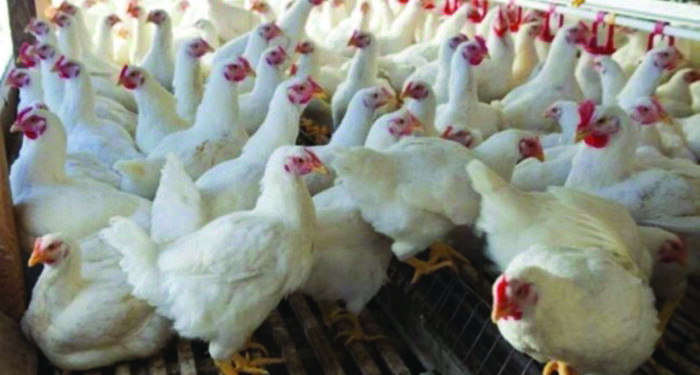NE NEWS SERVICE
CHENNAI, APRIL 11
Several people who eat chicken were infected by bird flu, which is also known as avian influenza like 2007-08. States like Maharashtra and Madhya Pradesh have issued a 15-day ban on the sale of chicken and eggs, and Kerala has declared the bird flu epidemic a state catastrophe, making it increasingly difficult for state governments to keep the disease from spreading. In Kottayam’s Neendoor panchayat, it has been established that over 1,650 ducks in a farm area perished of this sickness, boosting the disease’s spread.
State health secretary Radhakrishnan claims that the state is both responding to and proactively preventing the spread of avian flu in Tamilnadu. To safeguard the survival of the poultry business, Tamilnadu has advocated cutting down on the import of chicken and eggs from Kerala, however it has taken numerous sane steps.
- Tamilnadu is preparing to be India’s first poultry-safe state by utilizing suitable technology and healthcare measures, serving as a model for how technology may support the poultry sector during times of crisis.
Tamil Nadu boasts about 120,000 of India’s approximately 300,000 poultry farms. One-third of India’s poultry revenue (Rs 121 billion) is generated by the this sector. For the prevention of this industry, the Tamil Nadu government has used technology in an innovative way. Using an AI-driven approach, the state is able to detect dead or sick chickens in flocks and then utilize an alerting system to automatically segregate the animals. Several small-scale poultry farms have been used to test the efficacy of this effort since its inception in 2009, reported Outlook.
A proactive approach to the isolation of sick or dead hens has lately been adopted by several poultry farms in Tamil Nadu.
In 2009, a poultry field in Namakkal, TN (SRS Poultry) deployed a low-cost AI-based image processing technique to monitor and notify the poultry of irregularities. Vaidyanathan G from Vickram college of engineering, Madurai, developed this technology in the year 2008-2009.
After implementing this solution on a small number of poultry farms, it expanded to a larger number of farms. The poultry farm uses a low-cost webcam to continually monitor and capture images at 30-60 frames per second. These images are contrasted using an AI-based image processing algorithm to detect the actions of ill or dead chickens.
Researchers throughout the world have expressed their admiration for Vaidyanathan’s approach at major conferences such as ICEDSP 09, Cognizance 2009, and ICDIP 2009 and 2010. For this effort, Indian Institute of Technology, Roorkee awarded the third prize at Cognizance 2009, an international conference. IEEE’s international conference on digital signal processing, ICEDSP 09, awarded this paper second place honors. The idea gained traction and became well-known at state and national level symposiums, receiving multiple honors.
This solution gained momentum as it began to have a greater impact and better outcomes in detecting sick chickens. The low-cost AI technology, which is now being used by more than 150+ poultry farms, is progressively becoming more well known. Seeing a repeat of 2008, several poultry farms in Tamilnadu have stepped up their use of this technology, putting them well-prepared to deal with the current crisis. To help the poultry business as a whole, Vaidyanathan has made his work open source (No-License) so that anybody could adopt or use his algorithms and technology. Taiwan, China, and Japan have already begun using this technology, and there is ongoing study in this field as a basis for further development. One such notable advancement is a research study by Taiwan’s National Chung Hsing University in the year 2021.
Tamilnadu is preparing to be India’s first poultry-safe state by utilizing suitable technology and healthcare measures, serving as a model for how technology may support the poultry sector during times of crisis.












